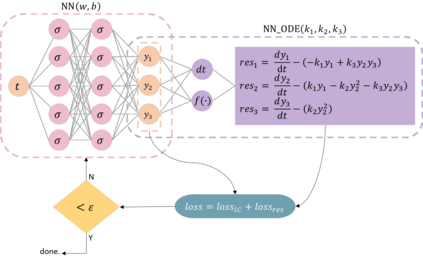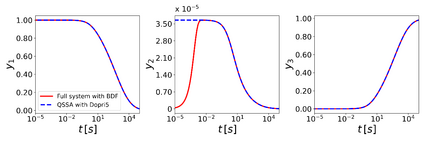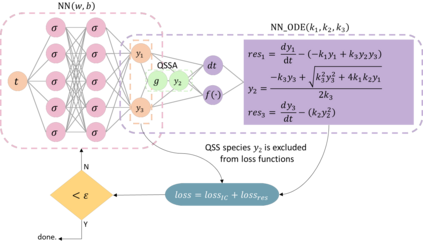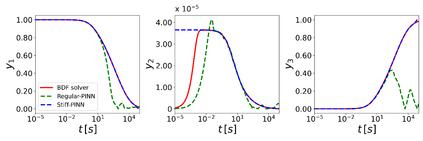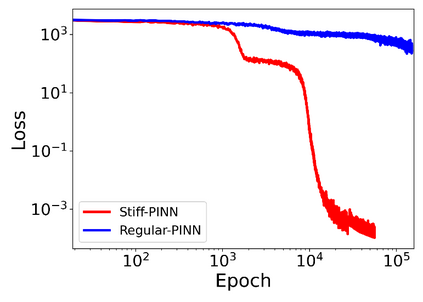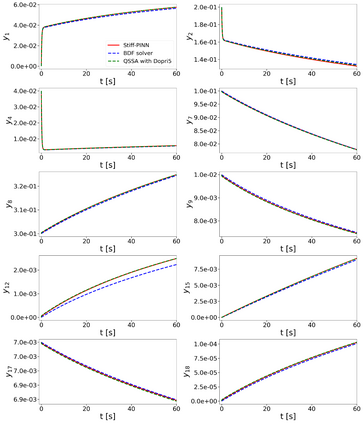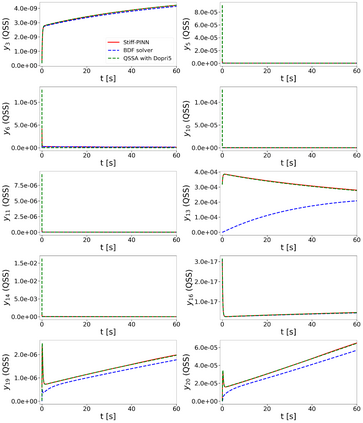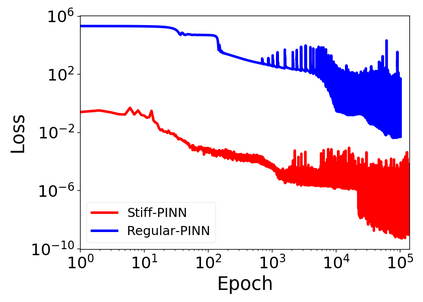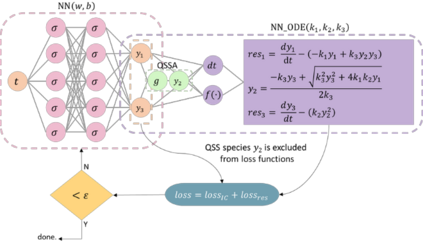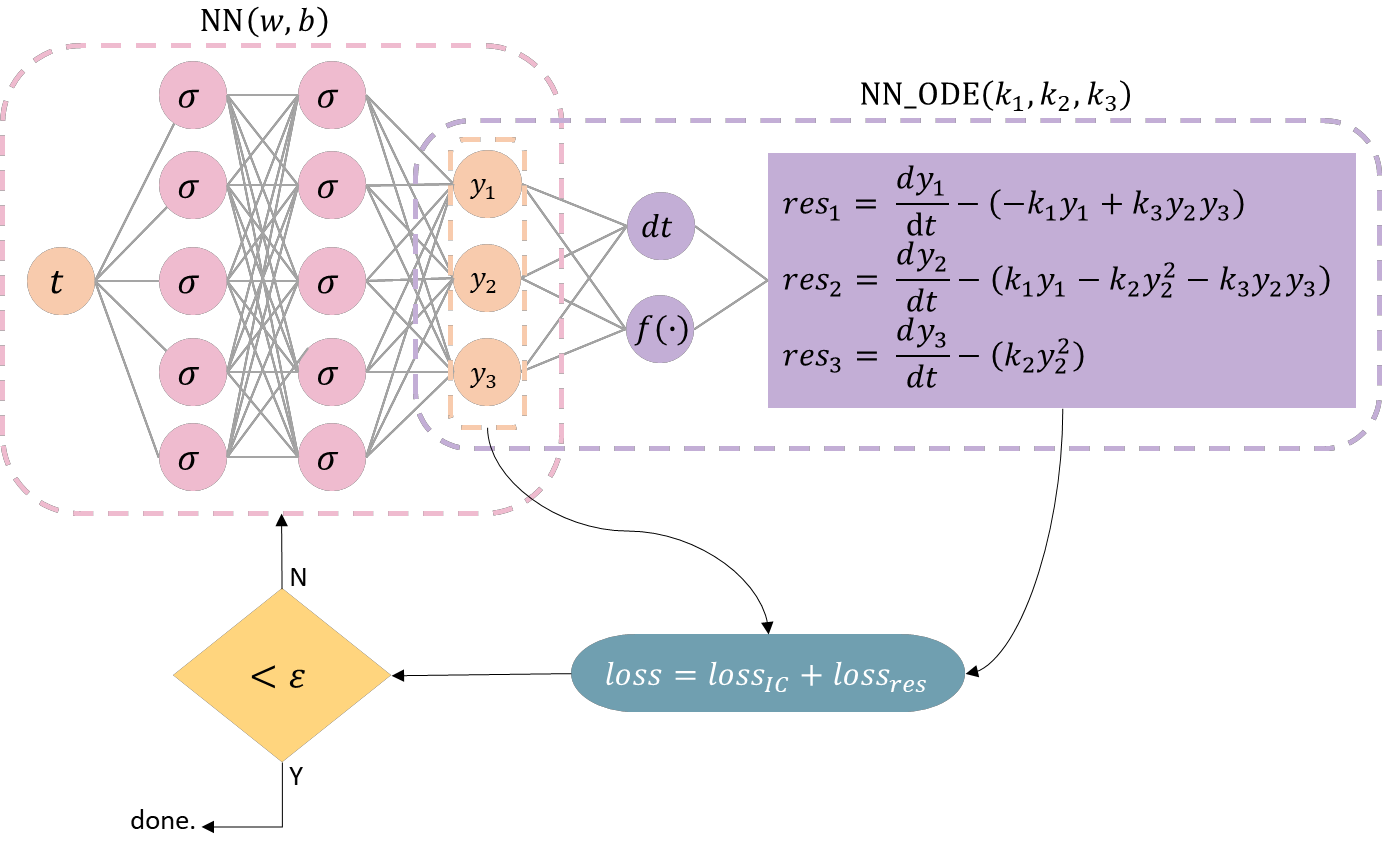Recently developed physics-informed neural network (PINN) has achieved success in many science and engineering disciplines by encoding physics laws into the loss functions of the neural network, such that the network not only conforms to the measurements, initial and boundary conditions but also satisfies the governing equations. This work first investigates the performance of PINN in solving stiff chemical kinetic problems with governing equations of stiff ordinary differential equations (ODEs). The results elucidate the challenges of utilizing PINN in stiff ODE systems. Consequently, we employ Quasi-Steady-State-Assumptions (QSSA) to reduce the stiffness of the ODE systems, and the PINN then can be successfully applied to the converted non/mild-stiff systems. Therefore, the results suggest that stiffness could be the major reason for the failure of the regular PINN in the studied stiff chemical kinetic systems. The developed Stiff-PINN approach that utilizes QSSA to enable PINN to solve stiff chemical kinetics shall open the possibility of applying PINN to various reaction-diffusion systems involving stiff dynamics.
翻译:最近开发的物理知情神经网络(PINN)在许多科学和工程学科中取得了成功,将物理法编码为神经网络的损失功能,使网络不仅符合测量、初始和边界条件,而且符合治理方程式。这项工作首先调查了PINN在解决硬性普通差异方程式等式治理的硬性化学动能问题方面的表现。结果阐明了在硬性ODE系统中使用PINN的挑战。因此,我们采用Qasi-Steady- State-Ampations(QSSA)来减少ODE系统的僵硬性,然后PINN可以成功地应用于转换的非/mild-stiff系统。因此,结果显示,硬性硬性PINN在研究的硬性化学动能系统中失败的主要原因可能是常规的PINN。已经开发的Stiff-PINN方法,利用QSSA来帮助PINN解决硬性化学动能,将PINN应用于各种具有僵硬动态的反射系统。

